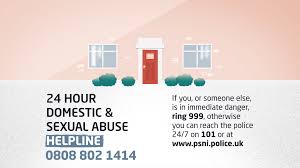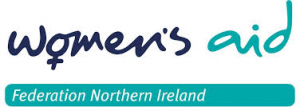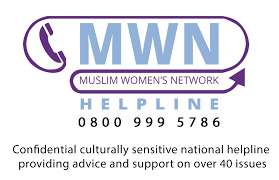*Exit Site button – Get me out of here*
See the signs and get help (external pdf links):
Woman’s Aid Survivor’s handbook in different languages: English, Arabic, Gujarati, Turkish, Bengali, Punjabi, Somali, Urdu
Domestic Abuse and Islam: Leaflet from Muslim Woman’s Network: LINK HERE
Domestic Abuse & Islamic Teachings
Domestic abuse and violence occurs in all societies regardless of culture, ethnicity, religious background or socio-economic status. This guide has not been produced because Muslims are more likely to be victims of domestic abuse than those belonging to other communities. Instead, the aim of the guide is to remind Muslims of the teachings and practices of the Prophet Muhammad (peace be upon him) so that such un-Islamic practices do not take place in Muslim households.
In his 38 years of married life, the Prophet Muhammad (peace be upon him) never abused any of his wives and was extremely gentle and compassionate with his family. In fact, one of the companions is reported to have said: “I have never seen anyone more kind to his family than Allah’s Messenger (peace be upon him).” [Sahih Muslim]
Women as well as men can be victims of domestic abuse, depending on which spouse is in a dominant position in the marital relationship. Domestic abuse manifests in various forms, most commonly as physical violence, but also as emotional abuse and financial control.
Domestic abusers make excuses for their violent conduct by citing frustration to financial difficulties, problems with children, family members or colleagues, cultural pressures or an inferiority complex and they let out this frustration by abusing their spouses. In order to justify their detestable actions, sometimes, they distort the meaning of a particular passage in the Qur’an and take it out of context.
By Qari Muhammad Asim Senior Imam – Makkah Mosque, Leeds @QariAsim.
READ MORE from Qari Muhammad Asim HERE
What is Islam’s position regarding domestic violence?
Islam prohibits all forms of oppression and injustice (Qur’an 5:8; 4:135; 42:42-43). Muslims scholars agree that Islam does not allow any form of abuse.
What does Islam say about ending abuse?
Islam holds its followers responsible for speaking out against injustice and doing whatever is possible to end all forms of oppression (5:8; 42:42-43). The Qur’an reminds victims of oppression that if they are powerless to end the oppression, God’s earth is spacious enough for them to find a place free of oppression (4:97).
Violent and abusive behaviour in the home (taken from https://www.nidirect.gov.uk/articles/domestic-violence-and-abuse)
Domestic violence and abuse happens in the home. When a family member, current or former partner is violent or abusive to you, you’re experiencing domestic violence. It can involve physical contact, verbal or emotional abuse and threats to harm or kill you.Men and women experience domestic violence and abuse.
Domestic violence and abuse can affect you whatever your age, race or gender. Victims often feel isolated and frightened. It’s domestic violence or abuse when an adult child, parent, other close family member or partner makes you feel afraid in your own home by:
- threatening you
- injuring you
- controlling you
You don’t have to be physically hurt to be a victim.Domestic violence and abuse can include child abuse by a family member. This is when a child or young person is harmed, neglected or bullied by a family member.
Emotional abuse
Domestic violence and abuse includes emotional abuse in a family or a relationship. It’s emotional abuse if you’re constantly being sworn at, teased or told you’re unwanted.
Recognising domestic violence and abuse
You might not always realise you’re experiencing domestic violence or abuse. A partner or former partner may physically harm you or mentally abuse you. Sometimes victims of domestic violence think they’re causing problems that lead to violence. The only person to blame is the person being violent or abusive.
Disclosure Scheme: Check if your partner has a history of Domestic Violence: https://www.nidirect.gov.uk/articles/checking-partners-history-abuse
How to get help

PSNI (Police Service of Northern Ireland) https://www.psni.police.uk/crime/domestic-abuse/
For non-urgent matters you can drop into your local police station during opening hours or call the police on 101 (if you are a Tesco mobile or giffgaff user call 028 9065 0222)
Operators will pass your call on to your local police station
IN AN EMERGENCY ALWAYS CALL 999

NexusNI
24 Hour Domestic and Sexual Abuse Helpline open 24/7 and can provide support to anyone who needs it.
You can call 0808 802 1414, email help@dsahelpline.org or visit https://dsahelpline.org

Women’s Aid
Online Chat service: Monday to Friday 10:00am – 12:00pm https://chat.womensaid.org.uk/
Advice lines:

Muslim Women’s Helpline
By Phone 10am to 4pm (Mon to Fri)
0800 999 5786 (free from mobiles and landlines)
0303 999 5786 (Usual call rates apply) Text: 07415 206 936 during operating hours
Email info@mwnhelpline.co.uk. Emails answered during operating hours
Webchat: 10am to 4pm (Mon-Fri) https://www.mwnhelpline.co.uk/

Solace: For Revert Sisters in Difficulty
Ways to apply for help: Complete the referral form. Call 07985641080 (Mon-Fri 10-11am and 8-9pm) / Sat-Sun 8-9pm) and a referral will be taken over the phone with you.If you would like to refer a revert sister for support, please ensure you have her permission and you may then complete the referral form. http://www.solaceuk.org
FORCED MARRIAGE AND OTHER FORMS OF ‘HONOUR’-BASED VIOLENCE
FMU Forced Marriage Unit 020 7008 0151 EMERGENCY 020 7008 1500
Confidential advice and assistance to those who have been forced into marriage, are at risk of being forced into marriage or are worried about friends and relatives at risk.
Karma Nirvana 0800 5999 247
Confidential helpline and advice for victims of Forced Marriage and othe forms of ‘Honour’-Based violence.
SUPPORT FOR ASIAN WOMEN AND CHILDREN EXPERIENCING SEXUAL VIOLENCE
Ashiana (Helpline) 020 8539 9596
Refuge and support services for South Asian, Turkish and Iranian women aged 16-30, experiencing domestic violence, forced marriage and/or sexual abuse. Also provide a generic training, counselling and support service for young people and adults affected by domestic violence. Languages spoken: English, Punjabi, Urdu, Farsi.


